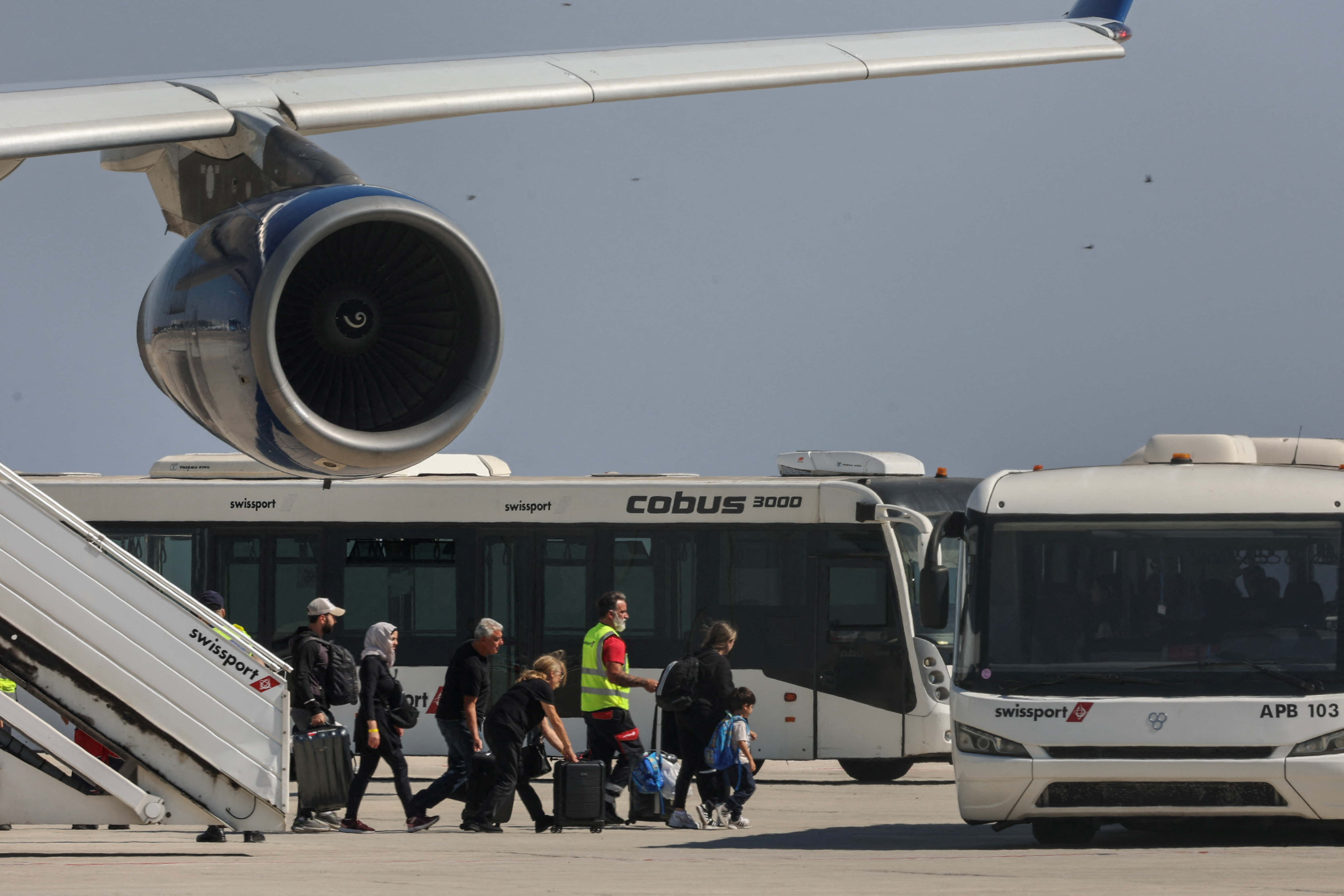A total of 1,550 people, primarily from third countries, had left Lebanon via Cyprus by Tuesday since the start of assisted departures on September 27, foreign ministry spokesperson Theodoros Gotsis said.
The majority of those who have left so far are Australian nationals, with 1,069 people among the total. Australia has conducted six flights and is scheduled to continue with two more on Tuesday, potentially extending into Wednesday.
According to Gotsis, most of the evacuees who arrived in Cyprus have already returned to their countries of origin. Accommodation for those awaiting departure is provided in state facilities under the provisions of the Estia national plan.
The total of 1,550 evacuees includes 76 Cypriot nationals and their 26 family members, as well as 33 Greek citizens. Additionally, smaller groups of individuals from 19 other countries are part of the overall number, Gotsis said.
Slovakia also contributed to the evacuation effort, conducting four flights with a small military aircraft, successfully relocating 98 individuals from Slovakia and ten other countries.
Portugal was the first country to carry out a flight, evacuating 44 individuals. Additionally, there has been increased commercial activity at the country’s ports, with the majority of arrivals being European citizens.
Gotsis also condemned the acts of vandalism against a school facility in Larnaca intended to be used as temporary accommodation for foreign nationals fleeing Lebanon.
The school, Kiti gymnasium, appears to have been unguarded when the incidents occurred over the weekend.
Perpetrators smashed windows, wrote and drew signs on the walls, including swastikas and slogans roughly translatable as ‘Death to the Masses’.
Gotsis explained that using school facilities for temporary accommodation is a standard practice in international humanitarian responses.
“However, these spaces are not the first choice for housing evacuees,” he said. “In preparation for potentially accommodating up to 7,000 individuals, specific areas have been designated for this purpose, with the important condition that these areas must not be next to classrooms.”
Gotsis stressed that, to date, none of the citizens evacuated from Lebanon have been housed in the designated areas at the school.
“We have a duty as a regional hub to provide whatever humanitarian support we can,” Gotsis said, bringing as an example “the humanitarian aid being provided to Gaza.”
He then mentioned ongoing preparations for sending medical assistance to Lebanon.
“It is a fundamental obligation for us as a member of the international community,” he concluded.







Click here to change your cookie preferences